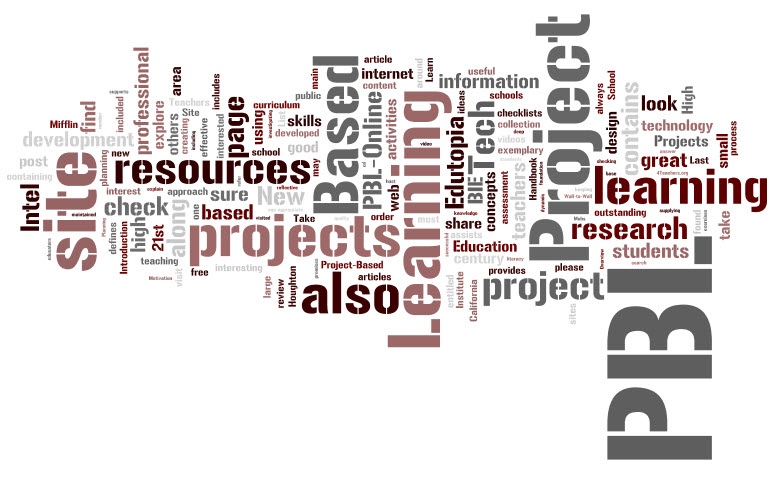In his video, Project-Based Learning for Teachers, Tony Vincent explains to teachers the benefits that come with Project-Based Learning. He describes it as, "While meeting the standards and creating an authentic product, students learn: Collaboration Skills, Communication Skills, Critical Thinking Skills and Career and Life Skills." He uses this video to show the multitude of ways that students gain critical skills through the use of PBL. At the end of his video, Mr. Vincent also shows a huge list of the many technology programs that can be used in Project-Based Learning. This video can be very educational to an educator who is considering developing a Project-Based Learning class and wants to know the positive aspects of this teaching method.
Andrew Miller discusses the effects of Project-Based Learning in his article, Project-Based Learning and Physical Education. He shows how using this teaching method can benefit the students in many different social and educational aspects. Mr. Miller gives an example in which high-school students are asked to create PE plans for students in middle school. This presents a task that allows them to work collaboratively on the development of a program to assist the middle school students. Through their collaboration the students are developing communication and presentation skills. These are tools that will not only be useful in academia, but also throughout their lives.
The video, Students Solve The Case of Watery Ketchup, is an excellent example of PBL. The students explain that they both shared a common interest/problem and then collaboratively worked together to find a solution. Through the use of the technology they had available to them, a 3D printer, they were able to put their ideas into physical form and create a solution to the watery ketchup problem. While this subject may not be viewed as "academic", the methods that these students employed to approach the topic are the most important.
PBL: What Motivates Students Today is a video about how today's students think. It shows that they have certain aspects of education that they deem most important. I found the student that talks about having his accomplishments publicly celebrated interesting. PBL is the perfect forum to be able to show off what you have worked on! Through instruments such as blogging on the internet, students are now able to share their work with the entire world. They are even able to get feedback from these individuals. Students will try harder and take more pride in their work by knowing that the public will be able to review it.


Russell great post on explaining the importance of driving questions and students experiences using project base learning to make their entry event valuable. I agree motivating students by showing off their work and using technology to form forums is a great approach to engage students to gain feedback on ideas from outside people. Teachers can be very effective demonstrating teaching standards, but providing students the ability to develop critical thinking, communication, and life skills. Russell your blog was very interesting bringing out these important teacher effective methods using project base learning.
ReplyDeleteHey Russell great post explaining what project based learning is and how teachers feel about it. I like how you created all links to the videos or reading to each of your paragraphs. I believe Project Based learning is a great way to keep students involved in their personal learning. It gives them a sense of purpose and helps them take ownership of their work. Again great post keep up the great work.
ReplyDelete